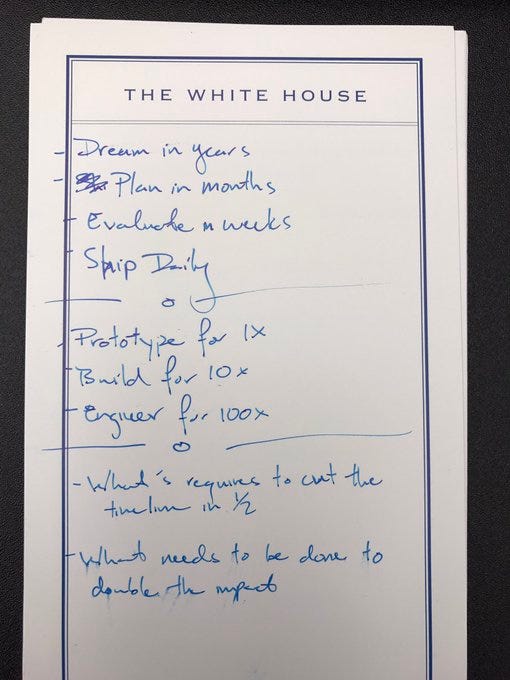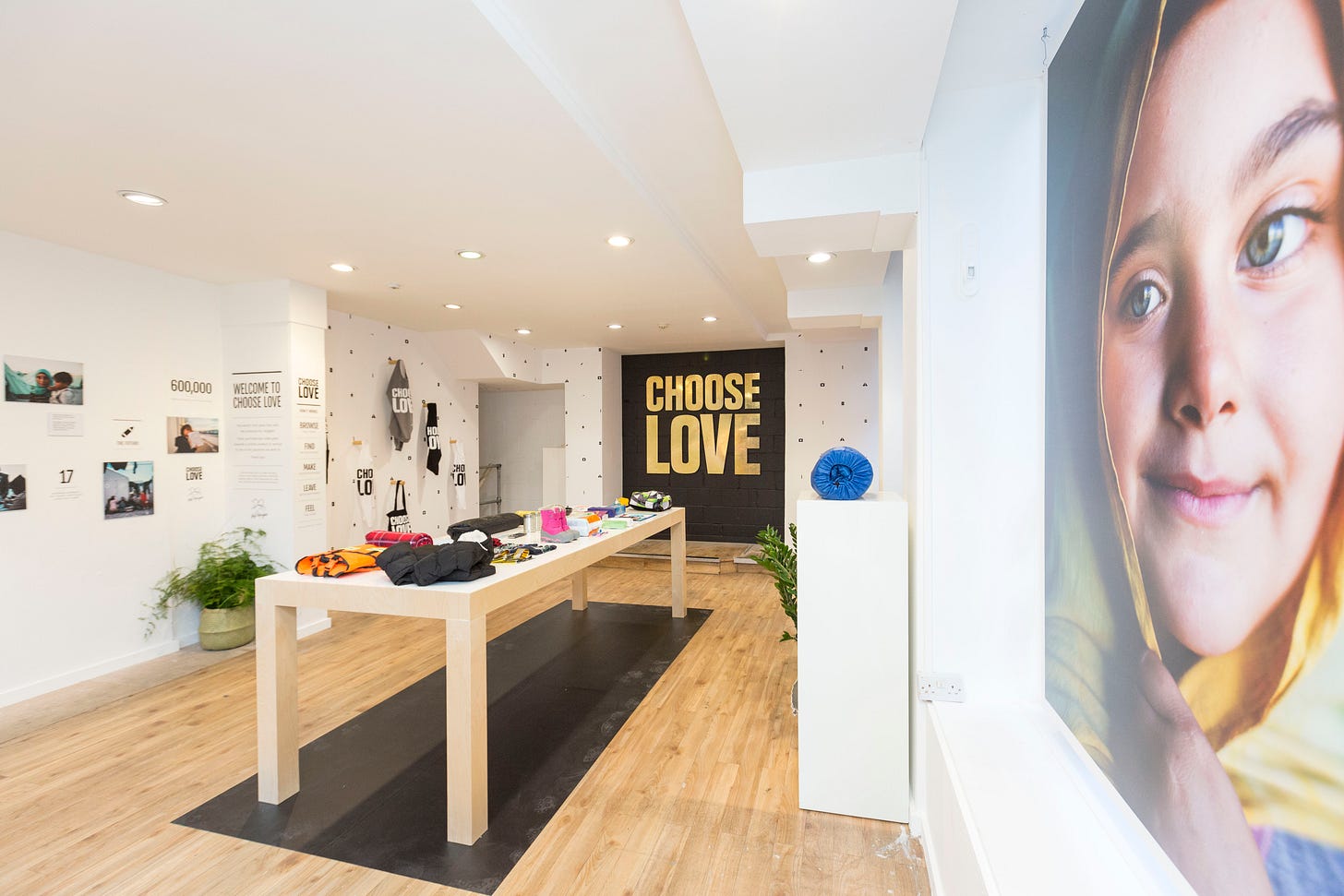#45: Abundance
And other guiding thoughts for the season ahead
Hello!
I'm writing this newsletter on the first weekend of September, and autumn has officially settled in Stockholm. I love this time of year for many reasons, mainly because it's connected to beginnings: the new season coinciding with a new academic year. And with the long summer vacations in Sweden, it feels like a new working year too.
I channelled this feeling as I curated this week's pattern interrupt.
Pattern interrupt is our format for hijacking our search and newsfeed algorithms. Tech startups are unlikely to see content from the charity world and vice versa—even if you could learn something from it. So when we pattern interrupt, we hack the system for everyone's benefit.
Let's get to it.
#1 Create your guiding principles
DJ Patil via Startupy
DJ Patil was the former U.S. Chief Data Scientist. During his time at the White House, he carried this card in his notebook:
Patil wrote this card in 2015 during an important workshop at the White House. A group of police chiefs, technologists, and activists had all gathered to brainstorm solutions in response to Michael Brown's killing and the subsequent civil unrest. Despite the urgency, the group was struggling to gel. So Patil created this set of guiding principles to bring everyone together. And it worked. Here's what his principles mean:
Dream in years, Plan in months, Evaluate in weeks, Ship daily.
In the tech world, "ship" means "deliver." Here, Patil is saying that the team should always create something daily but never lose sight of the long-term vision. After the workshop, Patil kept the card in his notebook to remember his purpose: to make the country a bit better each day.
Prototype for 1x, Build for 10x, Engineer for 100x.
This is all about how to deliver. Start small, try out lots of ideas, then start scaling something once you know it works. How can you reach 10x the impact, then 100x? My previous guest Teresa Torres spoke a lot about this process in her Q&A.
What's required to cut the timeline in half? What needs to be done to double the impact?
These questions are about speed and priority. What can we do to move faster? And are we focusing on the things that will achieve the greatest impact? They're just as relevant during a project as at the start, especially if progress is stalling. You can use them to get back on track.
#2 Think about abundance in abundance
Vu Le and Alicia Kennedy
I love the word abundant. It sounds like what it describes: richness, plentifulness. To think of autumn is to think of abundance. The word harvest came from the Old English hærf-est, meaning autumn.
Non-profits are drawn to the idea of abundance because it's the opposite of scarcity. In particular, scarcity of funding. But as Vu Le points out in his recent blog, there are so many ways to think about abundance besides money: relationships, imagination, grace, trust, faith, equity. To have an abundance of imagination is to believe that the world can change for the better. To have an abundance of grace is to show empathy to those around us. There's something so proactive in Le's argument. It reminds me of what Alicia Kennedy wrote on the same topic almost exactly one year ago:
Abundance doesn't have to be gifted to us; it can be cultivated. It can be a choice we make, in order to take care of each other and the earth. The world is abundant, I remind myself again in a dark time. I pray it. We just have to be sure to see it that way, to share it that way.
This autumn, I want to think about abundance in all its abundant ways. And act accordingly.
#3 Choose love
Choose Love
Choose Love is a UK-based non-profit providing aid and advocacy for refugees. Last month was their seventh birthday. During those years, they've helped 4 million people and raised over $80m. The secret to their success? Like Patil, they focus on impact and speed: they go where the need is greatest, then support the most effective local organisations on the ground. And unlike many charities, Choose Love avoids the tragedy narrative in marketing. Instead, their images and stories are joyful, focusing on the positive impact of their work. Every November, around Black Friday, they open their Choose Love pop-up—the world's first physical store for refugees. Together with their online store, Choose Love has distributed over five million hot meals, almost three million nappies, and over 650,000 items of clothing. Their work is abundant in every possible way.
In the spirit of abundance, why not share the ideas you’re carrying into the new season:
Thanks so much for reading,
Lauren



